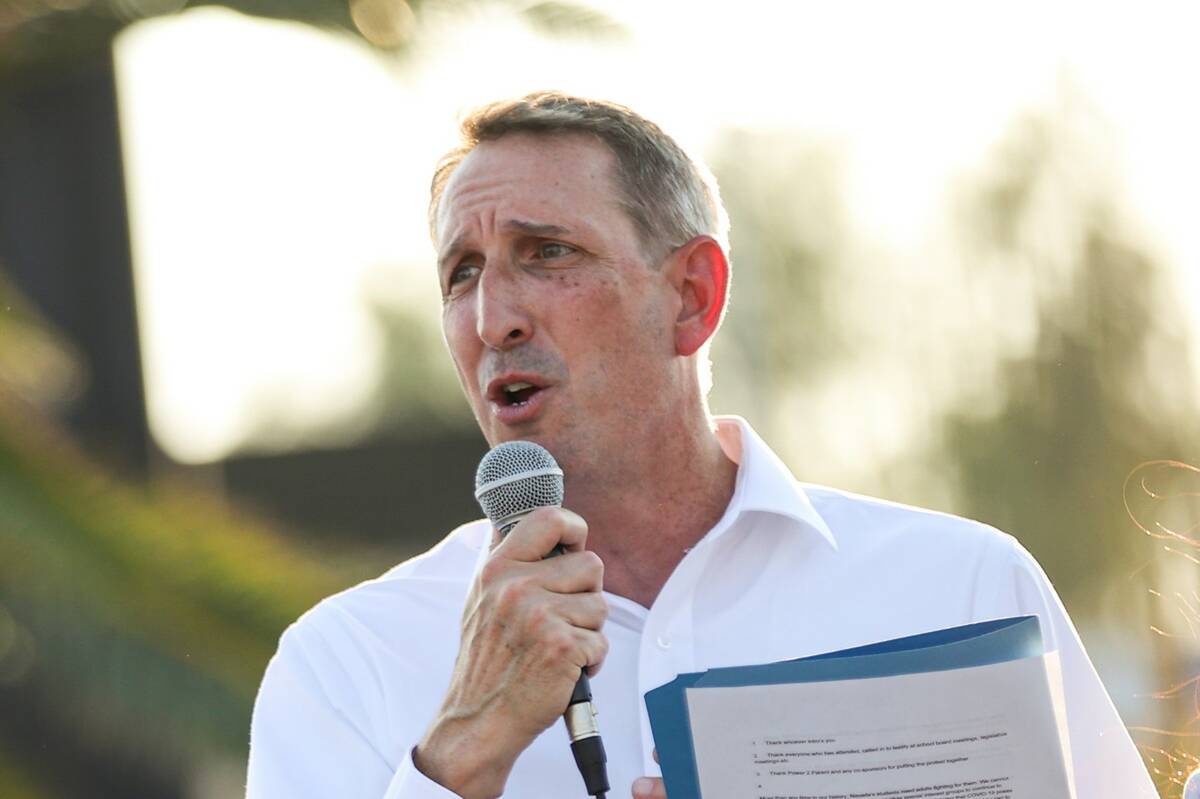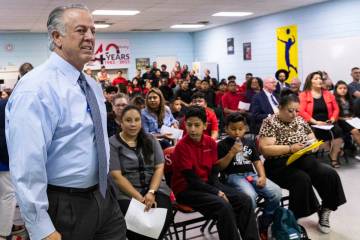STEVE SEBELIUS: Hammond goes out a leader
CARSON CITY — There is no one in the state Capitol more closely associated with school choice than state Sen. Scott Hammond.
The Las Vegas Republican is literally the father of the Education Savings Accounts, which would have set aside state funds for parents to spend on tutors, tuition or other education expenses. He helped charter schools get bonds for buildings. He helped get a charter school on Nellis Air Force Base.
No one can question his credentials when it comes to education choice, which is why it was a little odd to see him join with majority Democrats on Tuesday and cast the tiebreaking vote to approve a budget while his GOP colleagues were demanding money to increase charter school teacher pay.
But that’s what happened during a very brief special session called to pass the state’s capital projects budget, which Gov. Joe Lombardo had vetoed during the regular session, saying his legislative priorities had been ignored. “It’s a hard vote to take,” a subdued Hammond said after leaving the Senate floor. “This is something that had to happen.”
Some fellow Republican senators — notably Ira Hansen of Sparks and Minority Leader Heidi Gansert of Reno — urged a “no” vote on the budget to try to wring additional concessions from Democrats. They wanted $32 million to give charter school teachers the same raise that public school teachers got.
It’s not an unreasonable request, given that it’s a tiny fraction of the money the Legislature allocated during its recent session. Democrats, as Hammond well knows, are adamantly opposed to most school choice initiatives, preferring public money remain with traditional public schools. They stuck hard to that view during the session, turning away a Lombardo request for more Opportunity Scholarship funding.
Some will call Hammond a sellout. But the truth is, his colleagues knew he was going to vote with Democrats to pass the budget. In fact, his vote allowed them to grandstand without consequence, while also fulfilling the Legislature’s primary constitutional responsibility, properly funding the state’s two-year budget.
“Look, I’ve been here many, many years,” said Hammond, who served two years in the Assembly and nearly 12 years in the Senate, where he’s term-limited. “And sometimes, you know, it’s worth holding out for it, sometimes there’s something there and other times it’s just, it’s not there. … It wasn’t as if I wasn’t ready to hold out more. I just didn’t think that it was going to achieve anything more.”
And he’s right. Lombardo — who called the session and asked the Legislature to pass the capital budget — had won some concessions from his veto, although not nearly as many as he’d have preferred. There wasn’t anything further to be gained by voting “no,” asking for things Democrats would never give.
Hammond’s vote was a responsible one, a pragmatic one and a sacrificial one. His wife teaches at a charter school and won’t get the raise. And this vote will be used against him should he choose to run for office in the future.
In the meantime, Hammond has an agenda: “I’m going to still work and make sure that charters and other schools of choice have the funds necessary, have the resources that are available to them to be able to do a good job and educate all the students that come through their doors,” he said. “I think that that’s really important that they have somebody to advocate for them and I’ve been there for them in the past.”
Tuesday’s vote wasn’t Hammond’s final one in the Legislature, but it should be remembered as one of his most consequential. When Hammond’s career is weighed, he should be remembered as somebody who did the right thing when faced with a tough choice, who governed rather than postured. That’s the act of a leader and a statesman.
Contact Steve Sebelius at SSebelius@reviewjournal.com or 702-383-0253. Follow @SteveSebelius on Twitter.























